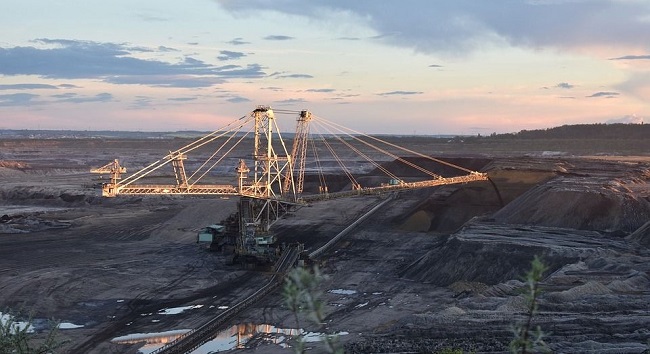A group of UN agencies designed to accelerate the phase-down of coal is working on ways to help societies wean themselves off coal in Asia and the Pacific region, with a key focus on the just transition to clean energy. The working group has been formed within a coalition on Raising Ambitions on Climate Actions.

Coal is the fossil fuel most responsible for heat-trapping emissions which are causing global heating. 30% of the primary energy of G20 members and 50% in Asia still comes from coal. Unless coal is phased out and global greenhouse emissions are halved by 2030, there will be no chance of the world staying below a 1.5 degrees global average temperature rise. Already at global warming of just over 1 degree Celsius, Asia is experiencing unprecedented heatwaves, droughts and floods.
All governments agreed to a phase-down of coal at the UN Climate Conference COP26 in Glasgow in November 2021, with a number of countries making concrete commitments. A Just Transition Declaration, re-emphasising the importance of a just transition to sustainable energy, was issued following the launch of Climate Action for Jobs Initiative (CA4JI) by the United Nations Secretary-General António Guterres, designating the International Labor Organisation (ILO) to spearhead its implementation.
Risks and opportunities of the transition away from coal
In May 2022, along the sidelines of the 78th Commission of the Economic and Social Commission for Asia and the Pacific (ESCAP), ILO along with ESCAP, United Nations Environment Programme (UNEP) and UN Climate Change Secretariat came together to coordinate their efforts and discuss next steps.
Drawing on a recent publication “A just energy transition in Southeast Asia: The impact of coal phase-out on jobs,” the discussions at this event specifically focused on steps needed to ensure that any phase-out of coal in Indonesia, the Philippines and Viet Nam is indeed just. In Southeast Asia, coal consumption has risen by 150% over the last 20 years, with the share of coal in the electricity mix increasing from 27% in 2010 to 43% in 2019.
These three countries are among the five economies with the highest levels of coal consumption in Southeast Asia. Indonesia and Viet Nam are important coal producers, while the Philippines relies heavily on coal imports for energy generation in Southeast Asian countries.
Experts warn that job losses due to mine closures in coal-dependent regions can have a profound negative effect on the labor markets, economies and livelihoods of local communities in these countries.
“An energy transition that focuses only on solving the financial losses for the capital asset owners of coal power plants or mining, but not the issues for the workers and the communities, will not be successful. The potential for nature-based employment to offer green jobs for these workers needs to be maximised,” said Panudda Boonpala, Deputy Regional Director, Regional Office for Asia and the Pacific, ILO.
Coal phase-out also provides opportunities. “It is anticipated that 2.7 million jobs will be lost due to phase-out and phase-down of fossil fuel-based power plants by 2030 under current commitments, but 13 million new jobs will be created through clean energy transition, and it needs to be about 30 million for a net-zero target by 2050,” said Sonja Leighton-Kone, Acting Deputy Executive Director at UNEP.
The challenges are clear. Coal producing regions are often isolated and the opportunities unfolding in the clean energy sector may not match the existing skills or geographic locations of impacted workers.
“Ensuring that everyone benefits from the energy transition requires interventions such as strong labor market policies, social protection and new skills development. Maintaining a dialogue between workers, government and employers throughout this process is also instrumental,” emphasised Kaveh Zahedi, Deputy Executive Secretary for Sustainable Development, UNESCAP.
More and more countries, jurisdictions and companies are now debating, adopting and implementing climate targets, including net-zero mid-century commitments, and specific coal phase-out targets. Progress in deployment of different fuel types, power plants and renewable energy infrastructure in Asia-Pacific from 1990 until the present can be visualised and tracked in the UN’s Asia Pacific Energy Portal.
UNFCCC/IGES Regional Collaborating Centre for Asia and the Pacific (RCC Bangkok) supports efforts to phase down coal
RCC Bangkok supports UN Climate Change’s initiative on response measures to minimise impacts, including dealing with just transition issues.
Coal-fired power generation is a major part of the garment industries’ carbon footprint. Hence, RCC Bangkok integrates UNFCCC’s work with the fashion charter and the activities of this working group to amplify the impact. For example, through the Fashion Charter for Climate Action, RCC Bangkok will facilitate innovative approaches to scale up resource efficiency in industries by engaging leading global brands and their supply chain partners in Bangladesh, Cambodia, China, Indonesia and Viet Nam.
Through its ongoing CIACA project, RCC Bangkok is helping countries to incentivise the change from fossil fuel-based energy to renewable energy-based sources to accelerate just transition.
Besides aspects of technical feasibility, policy options, RCC Bangkok and the UN Climate Change Secretariat plan to support this Working Group in gathering information and data regarding the impact of response measures and in delivering regionally focused capacity building activities. These include the recently concluded SB56 event on policies related to just transition; regional workshops; national policy dialogues; and more outreach on just transition at COP27.
